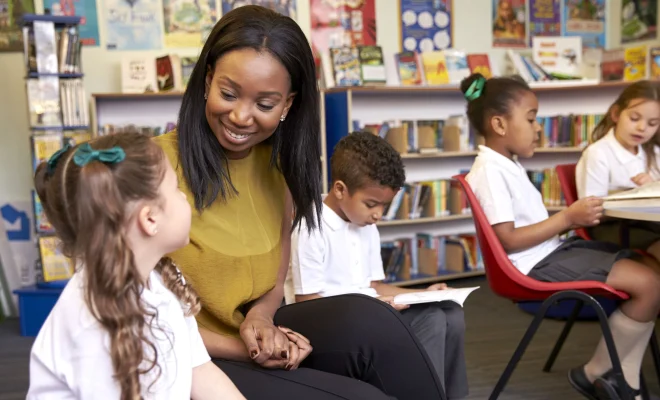21 Ways to Build Background Knowledge

The ongoing discussion regarding the reasons why reading test scores in the U.S. have stagnated was recently bolstered by a Forbes piece. Some people were offended by the headline “Why We’re Teaching Reading Comprehension in a Way That Doesn’t Work,” but the idea is accurate. Reading about a subject is made simpler by having more knowledge of it. According to studies cited by David Willingham, the capacity to conclude a book is best served by background knowledge rather than reading skills.
It’s not that specialists inform teachers of information they are ignorant of. Although relying on past information cannot replace close reading, you probably have many personal experiences of how a lack of contextual knowledge ruined a student’s reading experiences.
How can teachers help students develop prior knowledge with constrained class time and resources? We compiled a list of suggestions after consulting our network of committed pre-K–12 teachers:
- Make Virtual Connections with Specialists.
Give kids information they can recall and use as a reading guide. To chat with a professional in the field or lab from anywhere globally, use Skype as a Scientist.
- Go on Virtual Excursions.
Make reading situations more vivid for students. No need for an airline ticket! Common Sense Media has thoroughly examined many diverse resource possibilities for virtual reality and conventional displays.
- Offer a Variety of Sensory Experiences.
It would help if you genuinely had handled, smelt, and eaten a regular-sized peach for yourself to fully comprehend James’ trek to the center of the enormous peach. Several times per week, include a two-minute sensory experience in your daily meeting. Play new music, take in fresh scents, touch a piece of nature, or observe a historical artifact. Over time, students’ sensory understanding will increase.
- Advocate for Field Excursions and Unique Presentations.
Yes, there are numerous obstacles, such as those related to cost, time, and administrative pressure to maintain curriculum pacing. But really, what could enhance children’s understanding of the grandeur of Jane Yolen’s Owl Moon more than a naturalist’s encounter with a live owl? If your district finds it challenging to justify field trips and unique visitors, try arguing that they will help children better understand literature appropriate for their grade.
- Combine Literacy Education with Subject-Matter Issues.
Let the study of science and social studies serve two purposes for your kids. Align your ELA reading list and instructional mentor texts with subjects in which students are already gaining background knowledge.
- Make Use of Children’s Image Books.
Picture books are a fun and effective tool to increase pupils’ awareness of the world, regardless of age.
- Pay Attention to the Back Matter.
Picture books contain many wonderful authors’ notes, maps, recipes, activity instructions, and timelines. Try distributing them beforehand or distribute them and then reread the text with the new knowledge in mind.
- Consult Ed Guides for Children’s Literature.
Many publishers and authors provide comprehensive free teacher resources on their websites for their books. These materials typically contain sources for gaining background knowledge on the book’s subject. Visit Lee & Low Books’ guides for information on hundreds of titles.
- Utilize Text Sets
Several texts on the same subject are read to increase vocabulary and background information. Numerous access points are provided by various genres and media, including picture books, poems, articles, and graphic novels. Keep a running collection of brief texts and background-enhancing images for popular independent reading selections and books for the entire class. An excellent place to start is Newsela.
- Complement Bios with Facts and Tales.
Biographies are the ideal combination of historical context and human anecdotes, whether you want to utilize them to commemorate a particular day, a memorable month, or simply because your pupils enjoy baseball. Commit to frequently sharing exciting titles.
- Make Use of the Advantages Offered by Digital Libraries.
Utilize digital options to broaden the reach of literature-based knowledge construction. Customize text choices, add notes, include text in children’s native languages, and other ways to make the experience more child-centered.
- Include Knowledge-Enhancing Pauses When Reading.
What if students were actively involved in the knowledge-building process during the session instead of having all the information they might need to understand a text presented to them up front? The Iowa Reading Research Center advises giving “just enough” background information during a reading at predetermined stopping points.
- Divide and Conquer
You’ll experience a sense of playing Whac-a-Mole if your attention is solely on bridging all of the students’ knowledge gaps. It has a significant long-term influence if every grade level in your school collaborates to design a deep dive into a fundamental list of topics. This model would be an excellent starting point for group planning of experiences for setting the scene.
- Support Learning Through Mentoring Pupils.
Children start building up their knowledge of the world long before they need to use it to understand what they are reading. Although you can’t go back in time to compensate for lost opportunities, you can have older pupils who can mentor younger ones. Consider having peer mentors direct a science project, embody essential ideas, or produce imaginary playthings for younger children. As they work, they will increase their background knowledge!
- A Small Video Can Be Compelling.
Even when class time is limited, a video clip might give a student who has never seen snow or the ocean a lasting memory to draw on when reading. The English and Spanish versions of the Scholastic Watch and Learn videos are quick and cost nothing.
- Increase Your Knowledge of Emotions.
The background information necessary to comprehend a book may occasionally be connected to the characters’ emotional experiences rather than a specific topic. Students will be more able to understand stories deeper in schools that purposefully foster empathy. These 50 books are a wonderful place to start if you want to understand more about emotions.
- Perform a Prior Knowledge Self-Evaluation.
A self-evaluation of one’s comprehension of a forthcoming reading assignment can assist in identifying gaps. By helping students identify their ignorance, we can empower them to take charge of expanding their schema. The Carnegie Mellon University Eberly Center offers a few flexible inquiry types.
- Examine the Cultural Relevance of the Reading Material.
Cultural backgrounds are related to students’ prior knowledge. Engage kids in thinking about the connections between texts and their own life. This ReadWriteThink rubric is a helpful resource. When there are gaps for students, make plans for additional knowledge development.
- Share Staff Expertise With Pupils.
Learn about your coworkers’ interests and commit to acting as resident experts for each other’s pupils. Students reading Jason Reynolds’ Track series certainly have many more questions for Mrs. X down the hall, the 400m state record holder.
- Allow Students to Instruct One Another.
You have a class chock-full of them on anything from skateboarding to playing the violin to handling obnoxious siblings, to speak of local specialists. Connect peer teaching to procedural writing, or use the Passport app to compile videos.
- When Conducting Interview Tasks, Go Right to the Source.
Personal narratives are incredibly memorable. By having learners conduct written or video interviews with relatives or regional authorities on subjects related to classroom reading, you can draw on the expertise of your community.



